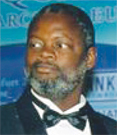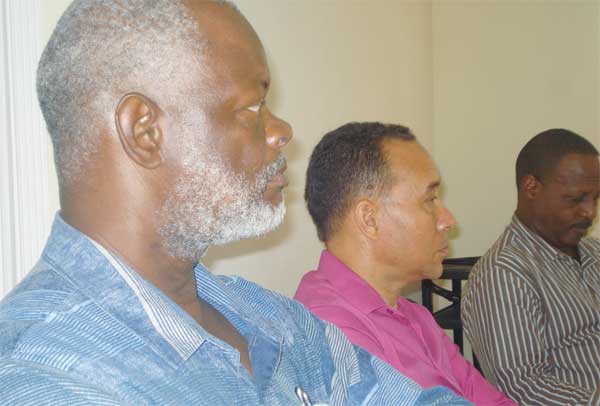
WHILE we have been showered for more than a decade with accusations and counter-accusations by our political parties, in a display that in essence has descended into “who thief” and “who thief more”, what rises from the political ashes is the convincing thought that there is a collapse of our institutions.
It may be an amazement to many that we have a Finance (Administration) Act which makes “provision for the management of public funds, its appropriation, withdrawal and issue of sums from these funds, for the public accounts and for connected matters”. Yes, indeed, we are still governed by laws!
The Finance (Administration) Act outlines the powers and duties of the Minister of Finance. In fact, Section 3 of the Finance (Administration) Act states that the Minister of Finance shall, subject to the Act have full responsibility for the management of the Consolidated Fund. The Act says FULL RESPONSIBILITY! Section 3 (2) goes on to state that:
The Minister shall give such directions and instructions as appear to him or her to be necessary or expedient for the advantage, economy and safety of public monies and public property.
This is a high bar of responsibility as expressed by the words: advantage, economy and safety. The Act is confining the Minister of Finance to engage in actions which are to the advantage, economy and safety of public monies and public property. It means that any Minister of Finance who has engaged or allowed any activity which imperils public monies and public property has failed in his or her function as Minister of Finance. The Minister of Finance must hold all Ministers and every Permanent Secretary to account.
The Act goes further in stating the responsibilities and duties of critical arms of the public service and established a role for the Parliament. There is a Director of Finance who, under Section 4, has a duty to ensure that every government officer is aware of the provisions of the Act in the management of the Consolidated Fund. The Director of Finance is empowered to go into any Ministry and demand documents related to any matter regarding public funds and public property.
There is an Accountant General who, under Section 5, is the Chief Accounting Officer and who shall perform a supervisory function with respect to the collection, expenditure and accounting for public funds. You also have Permanent Secretaries, who have a constitutional responsibility to supervise the Ministry and who, also under Section 6 (2), are responsible for the efficient management of and accounting for public funds entrusted to him or her as accounting officer.
You also have a Director of Audit, who is empowered and isolated by the Constitution. Lastly, you have a Public Accounts Committee, which is a Select Committee established by Standing Order 67 of the Standing Orders of the House of Assembly.
In summary, we have a Minister of Finance given duties and responsibilities under the Finance (Administration) Act, a Minister in a Ministry given duties and responsibilities under the Constitution to direct and control the Ministry, a Director of Finance, an Accountant General, a Permanent Secretary, a Director of Audit and a Public Accounts Committee of Parliament — all empowered to safeguard public funds.
With all of these layers of governance, how can we still be fed on a daily basis the rhetoric that has now become the norm in our local politics? So with every change in government, we hear one side singing and the other side crying. We hear accusations of the wrongs of a past or present Minister when the Constitution and the laws of Saint Lucia are clear on the fact that a Minister cannot award a contract nor can he approve a payment to a contractor.
With every malfeasance, we have to ask where were the Chief Technical Officer, the Permanent Secretary, the Accountant General, the Director of Finance, the Director of Audit, and then the Minister of the Ministry, the Minister of Finance and the Public Accounts Committee. There can be no self-imposed abrogation of their roles.
As stunning as it sounds, I think the last time we had a functional Public Accounts Committee in Parliament was when Sir Julian Robert Hunte was Leader of the Opposition — before you had your first cell phone.














Eng.Peters
And then, there is the Intergity Commission to report to the DPP on corruption from elected officials and public servants. And still, this guy: Guy, is sticking it to us at will….